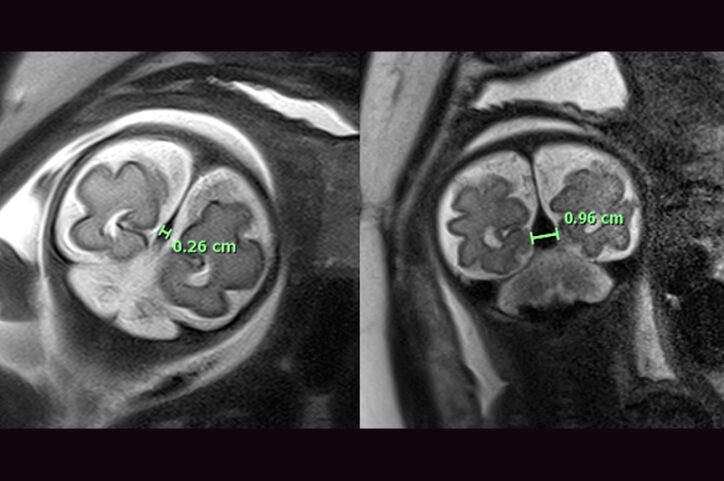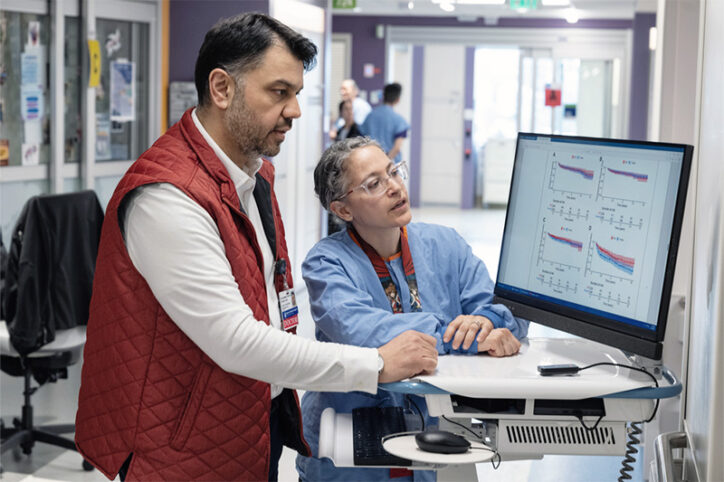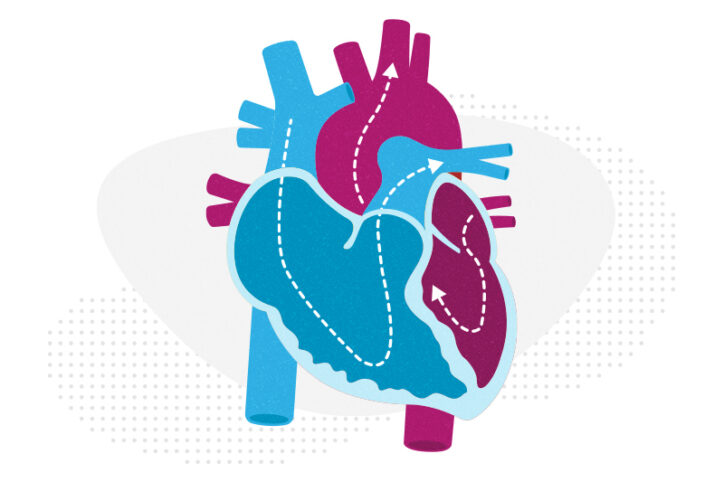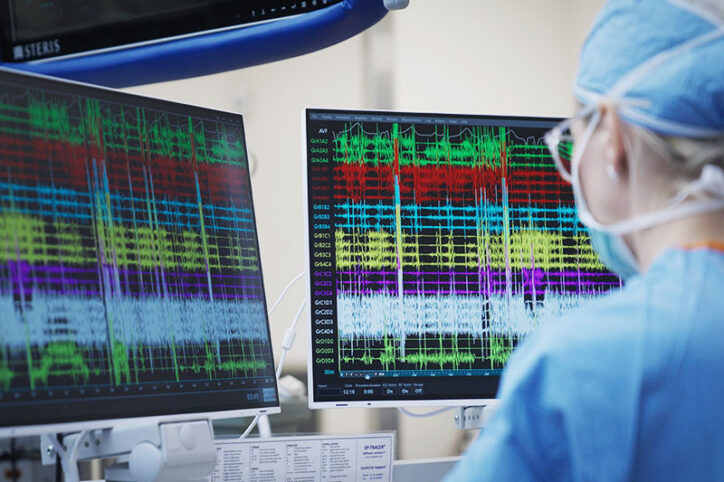Could the falcine sinus hold the key to vein of Galen outcomes?
A Boston Children’s Hospital study uncovers how fetal magnetic resonance imaging (MRI) could be a game-changer in predicting outcomes for infants born with vein of Galen malformations (VOGMs). The study, just published in Stroke, focused on the width of the falcine sinus (FS) — the fetal structure that channels blood from the malformation back to ... Read More about Could the falcine sinus hold the key to vein of Galen outcomes?
Past patient outcomes could help single-ventricle surgery decisions
When considering whether a child who has a single-ventricle heart defect would benefit more from biventricular repair or the Fontan procedure, heart specialists have lacked a key tool to guide them: data that shows possible long-term health risks of each surgical option. But Boston Children’s heart specialists — who perform biventricular repair more often than any other pediatric hospital — ... Read More about Past patient outcomes could help single-ventricle surgery decisions
A surprising link between Crohn’s disease and the Epstein-Barr virus
Crohn’s disease, a debilitating inflammatory bowel disease, has many known contributing factors, including bacterial changes in the microbiome that foster an inflammatory environment. Now, for the first time, Crohn’s disease been tied to a virus — specifically, Epstein-Barr virus (EBV), best known for causing infectious mononucleosis (mono). Researchers had already observed increased levels of EBV ... Read More about A surprising link between Crohn’s disease and the Epstein-Barr virus
It’s all in the PV loops: New analytical model could improve circulation assessments before heart surgery
The double-switch operation corrects the congenital reversal of the heart’s ventricles and its two main arteries. It’s a practical way of putting the ventricles into the position they belong so that children with congenitally corrected transposition of the great arteries (CC-TGA) can benefit from enhanced circulation. Surgery, though, doesn’t come without risks. Some children’s left ventricles — ... Read More about It’s all in the PV loops: New analytical model could improve circulation assessments before heart surgery
MRI could reduce the mystery of brachial plexus injuries in infants
About one in 1,000 children are born with brachial plexus birth injury (BPBI), upper extremity weakness or paralysis resulting from trauma to the brachial plexus nerves during childbirth. Most children with BPBI recover with observation and minimally invasive care, but about 30 percent have injuries severe enough to lead to long-term impairment. Thanks to recent ... Read More about MRI could reduce the mystery of brachial plexus injuries in infants
Conduction tissue mapping is shown to significantly reduce heart block
New research by Boston Children’s validates an innovative approach to mapping the heart’s invisible conduction tissue during surgery. Key takeaways Using a catheter to map unseen conduction tissue drastically reduces heart block during biventricular repair surgeries for several heart conditions. Conduction tissue was identified in 96 percent of patients who were mapped. Only 4 of ... Read More about Conduction tissue mapping is shown to significantly reduce heart block







